MBDA, in partnership with SAAB through their joint venture TAURUS Systems GmbH, has signed a contract with the Bundeswehr to modernise and maintain the TAURUS stand-off weapon system, ensuring its operational readiness through at least 2045.
As quoted in a press release, “A central component of the contract is the comprehensive modernisation of TAURUS cruise missiles used by the German armed forces. In addition to maintenance, the system will receive technological upgrades to meet the increasing demands placed on modern weapon systems.”
The modernisation efforts will significantly enhance Germany’s stand-off weapon capability, with the TAURUS missile playing a key role within the German Air Force and NATO’s strategic deterrence.
The Taurus is a German-Swedish air-launched cruise missile designed for precision strikes on fortified and strategic targets. Developed by Taurus Systems GmbH, a collaboration between MBDA Deutschland and Saab Bofors Dynamics, the missile has been operational since 2006 and is utilised by Germany, Spain, and South Korea. Featuring stealth technology, it has a range exceeding 500 km and is compatible with multiple aircraft, including the Eurofighter Typhoon and McDonnell Douglas F-15K Slam Eagle.
It is equipped with a 480 kg dual-stage MEPHISTO warhead, designed to penetrate hardened underground targets such as bunkers and command centres, as well as maritime and infrastructure targets.
The Taurus KEPD 350 employs advanced guidance systems, including inertial navigation, terrain-referenced navigation, image-based navigation, and GPS. It follows a low-altitude, terrain-hugging flight path to evade detection and improve survivability. Upon reaching its target, the missile executes a climb manoeuvre to optimise impact accuracy. Safety measures are incorporated to minimise collateral damage, including a mechanism to divert to a pre-determined crash site if target acquisition is unsuccessful. The missile also features electronic countermeasures to enhance its operational resilience in hostile environments.
The missile originated from Germany’s efforts to develop a domestic alternative after failing to procure French Apache missiles during the Cold War. Spain integrated the Taurus into its air force in 2009, while South Korea acquired 260 units for its F-15K fleet between 2013 and 2016. In recent years, discussions regarding its use in international conflicts have been contentious. Germany declined requests to supply the missile to Ukraine during the ongoing conflict with Russia, citing political considerations. The Taurus KEPD 350 remains a key asset in the arsenals of its operators, valued for its precision and adaptability in modern warfare.


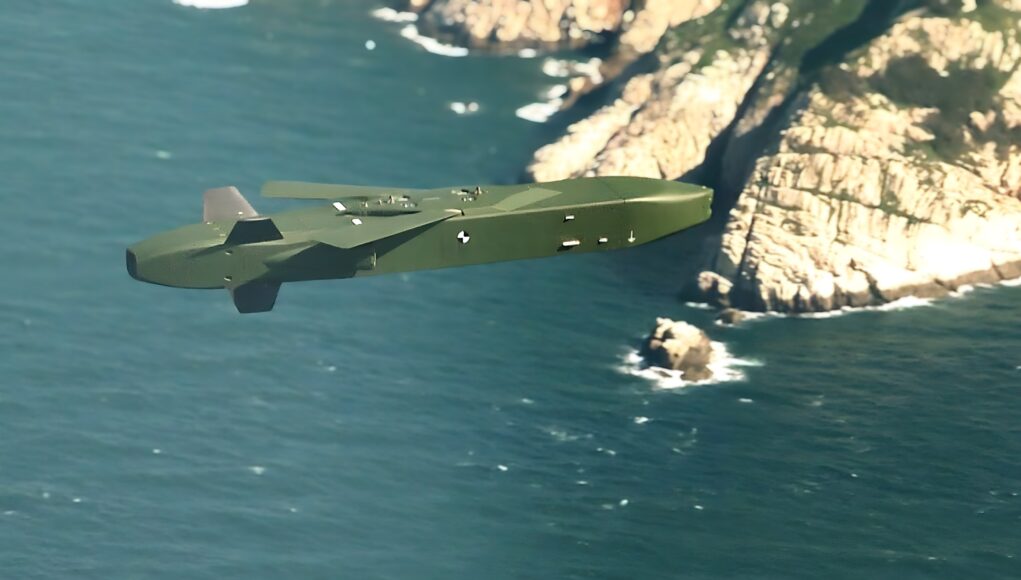
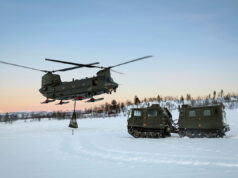


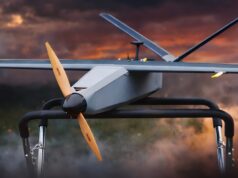

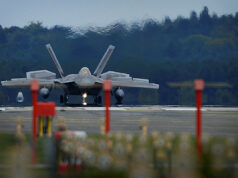
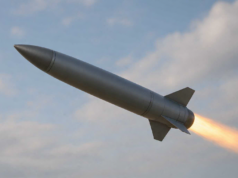


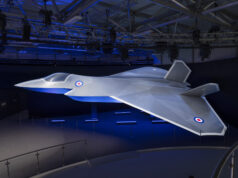

A really good example of why we should always be very very wary of any joint defence developments with Germany. It’s politics means it would be very difficult to use the weapons in a wider geopolitical sense, such as gifting them to an ally or selling them. The French may be hard work around workshare arguing over everything, if you actually develop something they are not going to get all tied up over use.
Unless it doesn’t suit the French….
True, but the french would only block for a very specific geopolitical reason that goes against their specific interests ( as the. UK has done with Argentina) , not the moral, lack of moral fibre, ethical reasoning of the German government.
Labour have gone to town somewhat emphasizing the joint developments taking place with Germany. from M3 Rig replacement to RCH155 to Boxer to this new GLCM.
They spun many of them as of their own creation, when many go back to the previous government.
So surely that does not mean we cannot use Boxers or our Tanks?
It’s not so much our use, we can use them as we wish, it comes to exports, Germany would have a veto any nation we wished to sell or gift them to. That’s the same with most equipment as nations are always working together.look how hard the UK has made it for Argentina to get fast jets because bits of our tec are in so many fast jets….but Germany has a very specific risk attached to it in that even if it’s not geopolitically important to it, it may object on some odd moral ground. It’s not a very good ally from a wider geopolitical point of view due to cultural hang ups and the high levels of support for living in peace with Russia no matter what that can be found in the east of the country. It basically means the UKs world view of active intervention and the German non intervention approach don’t gel well.
Come on Jonathan, they do have a good reason. If anyone had said Germany was going to splunk €50bn in updating its armed forces in 1990, people would have had a fit. The German people, like the Japanese have a memory of what they did. I know they still teach their schoolchildren a thorough history of WWII and whst Germany did. That programmes many to say never again. We would be saying it too if a far-right party assumed power and decided Germany was become Europe’s largest military.
Germsny yes. Japan less so. Many Japanese don”t realise they fought Australia during ww2. As or ehether thry realise they were at war eith UK is anyonrs busness and as for the atrocities they regularly committed you can bet that is toned down as much ss possible.
Oh I’m not saying they don’t have a good reason for it, they do cultural and generational trauma of societies is real. But the cause does not change the effect. So I can understand why Germany is the flakiest of allies on the international stage, but it’s still something that needs to be considered. I’ve treated a lot of people with nasty PTSD or personality disorders, psychosis etc, I don’t blame them for the outcome of their actions and behaviours but, when the person with a psychotic break grabs my scissors out my hand in an ED full of people I’m pinning him to the floor..I don’t judge him for his actions, but I’m reacting to what I know his likely actions will be…same with Germany on defence…if it’s something we don’t want to sell or give away, then work with them if it is sowmthing we may want to sell, be aware they may just turn around and say your not give that missile away etc.
Jonathan you may have a deeper understanding than me. equally i believe the german mindset different from uk especially towards russia. the gas pipelines continued despite russian history of using energy as a weapon and post crimea invasion, poor judgement and self interest. germany wanted cheap energy for industry and manufacturing exports worldwide. shutting down working nuclear power stations was icing on the cake pushing up energy prices for western allies.
It was once on par with the US on energy costs, it’s now by some sources 3 to 4 times more. No wonder its industry is in near free fall and discontent rising. Merkel deny it as much as she may try to do with ample misguided help of the Greens, has pretty much banded the Country into the hands of the enemy.
Germany has a very unique set of historic political drivers, that make its relationship with Russia more complex than the rest.
You have:
An East German population that actually is generally favourable to Russia and is quite frankly not really at all that friendly to the Anglo Saxon world..especially the US.
A very strong peace movement that essentially sees any risk of war as not worth it, this mixes with a population still scared by the 10s of millions that dies the last time it went to war with russia..there is a large part of the population who believe that peace at all cost policies should be enacted.
A set of centrist parties who are fixated on the ideas of “Ostpolitik” or engagement with the east in a new politics of cooperation.
Then you have the far right and far left political movements both of which are generally supportive of peace with russia for different reasons.
There is also a general dislike of the US and US power, infact most of the German population really don’t like the US as a nation.
GIS did a nice summary, “ explaining Germans half hearted support for Ukraine “.
One of my favourite quotes around the German view is
“Ever since Scholz realized Ukraine was capable of defending itself against Russia, his strategy has been to act in tandem with Washington in supplying Ukraine with just enough weaponry and equipment to survive, including anti-aircraft batteries and tanks, while withholding the tools it would need to win.
He has made no secret of this approach. To this day, Scholz, who belongs to Germany’s Social Democratic Party (SPD), has refused to say he wants Ukraine to win the war, saying only that “Russia must not win and Ukraine must not lose.”
The Germans approach to Ukraine can be best summed up in nicely in a German saying “ to Much to die, to little to live”.
Infact a poll of the population showed that only 20% of Germans supported doing more for Ukraine with 40% saying Germany should do less.
J thank you for solid 10.40 post
Hi M8, I think Germany may have learnt that trying to tell us what to do is counter productive. Besides which we tend to build things in U.K using joint venture companies, which negates any influence they may have. Also we really could clobber their arms exports by just refusing to supply equipment or spares made by U.K OR UK owned companies. It’s a real bugger when all their Military vehicles use RR owned MTU engines.
I always find it interesting that in spite of SAAB building this Sweden has never, as far as I know, bought any.
I’d assume this is mostly about replacing obsolescent parts and improving the software to work with better storage/memory/processors so the terrain guidance makes any GPS jamming or spoofing immaterial. Maybe adding LIDAR – which with clear skies is reverting accurate and cheap to implement.
Could also be an inertial upgrade so there is a full four input comparison to make GPS ticks even more obvious?
People have criticised the Germans over Taurus without mentioning the limitations the US places on end users use and even deployment of US products. They have every right to decide what, and who has access to Taurus or any German made weaponry. A fairly simple concept to grasp.
It’s not a criticism it’s simply fact that Germany have very different internal political drivers as well as geopolitical drivers…we simply want differs things to happen. That’s just reality.
German self interest on cheap hydrocarbon fuel is shameful and a self inflicted problem that put them in control of the terrorist state. Ironic that Greens preferred unsustainable hydrocarbons to nuclear power and submission to control by a kleptocratic dictatorship. What a great moral choice that wasn’t.
Merkel and Scholz have Ukrainian Blood on their hands never mind the damage to industry and employment.
Just a pity Germany wont ever use them (or gift them).
Keep updating the Russians on all Natis kit won’t you. They love it.
With weapon systems becoming replaceable within a year in Ukraine, seems a touch fanciful to claim you’ve ‘ensured’ this will last until ‘at least’ 2045? Perhaps double check the wording of that money back guarantee in the contract?